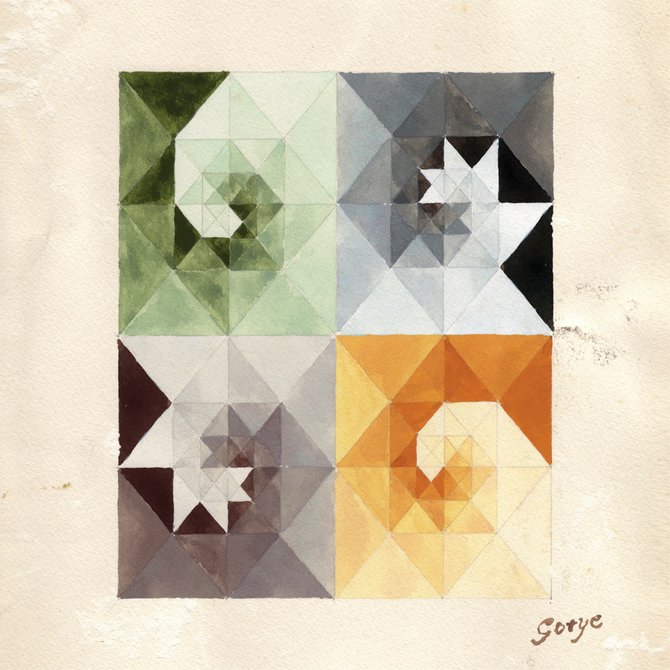Even though most listeners associate him with only one song, Gotye created a whole album of songs worth hearing over and over. Photo by Courtesy Universal Records
The idea of a "one-hit wonder" is nothing revolutionary, as each year several would-be Grammy winners quickly disintegrate into the throes of sudden obscurity, like the person who sat behind you in Algebra does after you graduate. The '80s had Dexys Midnight Runners; the '90s had Marky Mark and the Funky Bunch--though I think the movie business benefited more from Mark Wahlberg than the music business did. However, no decade has boasted more one-hit wonders and future "Where Are They Now?" exposes than the present, and the likely culprit is our quickly fading attention span.
We tend to listen to a single song from an artist until it feels worn, its faults and imperfections sticking out like rust on a tin roof and, instead of choosing a different track by that musician whose work we enjoyed enough to listen to it to death, we move on. It's a standard but unfair practice that routinely creates flash-in-the-pan chart toppers out of skilled artists with a passion for their craft and a desire to be something more substantial than the next Marky Mark.
Belgian-Australian multi-instrumentalist Gotye comes to mind as an example of how the modern one-hit wonder mindset affects great musicians. In case you've already forgotten, which is possible and in no way your fault, Gotye was the singer-songwriter behind last year's infectious, infinite-looping anti-love song, "Somebody That I Used to Know." The song appeared on "American Idol" and "Glee" and I'm sure a handful of other shows I have no interest in watching. It snatched up international accolades including two Grammy Awards and two ARIA Awards. It's also one of the most downloaded songs of all time.
That's all well and good. In fact, it's pretty incredible. That's more success than a majority of musicians will ever see from their careers, let alone from one song. However, "Somebody" wasn't the track that Gotye chose as a single, instead selecting "Eyes Wide Open." He didn't feel the former represented the rest of his album, "Making Mirrors," which was more bright pop tunes than the sultry-sounding, grief-stricken "Somebody" led audiences to believe. While many artists dream of having audiences latch onto their music, the average person only knows one Gotye song, one that does not accurately epitomize his work as a whole and will likely dwarf the rest of his music.
In reality, though, Gotye wrote an incredible album in "Making Mirrors," from start to finish. It displays the kind of catchy-yet-clever pop music that you can be proud to own and could have been proud to hear on the radio, a saving grace from the hundred or so hip-hop artists like will.i.am that can't release a song that isn't "featuring" someone else. Instead, with how overplayed "Somebody" became, many people ignored Gotye's other work.
Though, certainly, many factors determine whether a band would define a generation or define a month, most of the blame rests on the ease of purchasing one track from a record. It changes the experience, sure, but more substantially, it changes how recording labels and their stockpiled artists perceive music releasing. I'm probably not the only one of you who's heard countless stories about bands being forced to return to the studio to "write a single" for an album they already finished recording. Unfortunately, the purpose now is not to produce full-length records that weave a larger tapestry, but to write multiple singles to be sold separately and then stitched together in crude, clumsy movements more ham-fisted than Victor Frankenstein's monster.
The inherent issue is that not every song is meant to be a single, directly stuck in your head for days on end. Some tracks, like Gotye's effects-heavy verse on the prominence of electronic instrumentation, are what I call "slow burn," and though these songs aren't as instantly memorable as singles, they make up the bulk of an album and often embody the emotional and socially analytical side of music, delving into more profound concepts that don't fit as easily into the verse-chorus-verse-chorus format of radio fodder.
So, take a look at those old singles you bought and overplayed until they stopped seeming catchy and began seeming tedious, and let them take you down the rabbit hole for a while. Search for the full records, listen to those "slow burn" tracks that take a second to settle in, and invest some attention in the hidden gems that others may have ignored. You might be surprised to find those former one-hit wonders have another hit up their sleeves.



Comments
Use the comment form below to begin a discussion about this content.
comments powered by Disqus